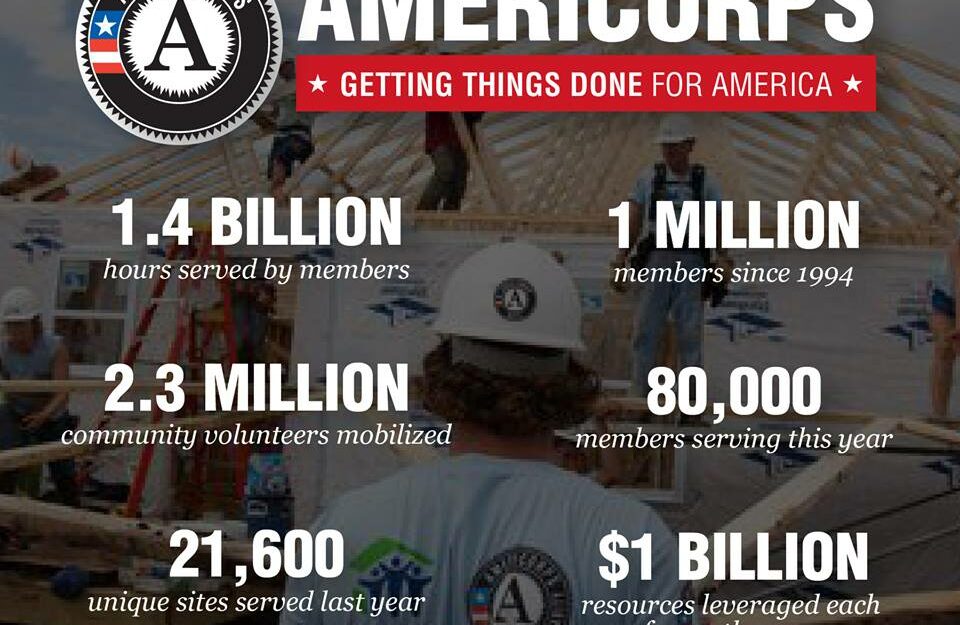Why I serve: an AmeriCorps story

By: Eric Chien
“We have another clone over here!” My crew and I followed the sound of the exclamation, slipping our way through a group of small trees and into a wet meadow. Across the clearing stood another a member of our Brainerd, MN based Conservation Corps Field Crew. As we sloshed through ankle deep puddles rimmed with early summer orchids, I could see that every one of us had a sizable cohort of mosquitoes trailing our fluorescent helmets. “Here it is, looks pretty manageable if we all tackle it at once.” Soon the dull thud of steel against bark mixed with the soft clattering of aspen leaves twisting in the wind. Shwwwwk. As we all focused in on our work, it was only the sound of our draw knives stripping the bark from trees for the next hour. The kind of ambient silence that builds and becomes so dense it stifles the thought of breaking it. “Best job I ever had!” Without any apparent prompt or to anyone in particular, one of the crew had mustered up the wherewithal to shatter the silence. “Best job I ever had!” rang out the staggered reply from throughout the trees.
Americorps program work is often not glamorous. It is the type of stuff you might like to learn about on television, and maybe even jump in on for a day or two, but seven days into a typical ten-day project trip and even those with well suited constitutions start looking beyond their current lot in life. Every person picks something to return to in the hardest stretches; during those hours when all you can see is a mountain of challenge in front of you, it is necessary to have some sort of ideological anchor for the decision to serve. Whatever it is, it has to be held close, and believed with fervor.
Growing up in Minnesota, I learned to love our native and wild places. I grew aware of how the integrity, health, and existence of such places formed the foundation of our thriving, uniquely Minnesotan human communities. I also came to see that foundation had cracks that have long been expanding. I found a regrettable found truth in Aldo Leopold’s warning that “to gain an ecological conscience means to live alone in a world of wounds.” That would be a dismal road to travel, but for programs like the Conservation Corps. It offered me a place “to get things done.”- the promise made in the Americorps creed by all program service members. With the Corps I often woke up tired, sore, missing home, but I also woke up with the gratification that I would get to spend the day affecting something that foundationally matters to me, and I believe to so many of us that call Minnesota home. In the hard times of my service, that was my keep.
For seven days my crew roamed acres of Northwestern Minnesota Aspen Parkland, girdling the bark from distinct groups of aspen trees. Working for the State Scientific and Natural Areas Program we were tasked with stripping the bark from these “clones,” to allow for the recovery of a severely imperiled prairie ecosystem that was being starved of light by aggressively expanding trees. It would be an early test of each of our resolve and commitment. In that mosquito choked, sopping afternoon, the affirming exclamations of our desire to be there, knowing that we each had returned to our internal firewall and found it intact, shines clearly in my mind. Best job I ever had.
